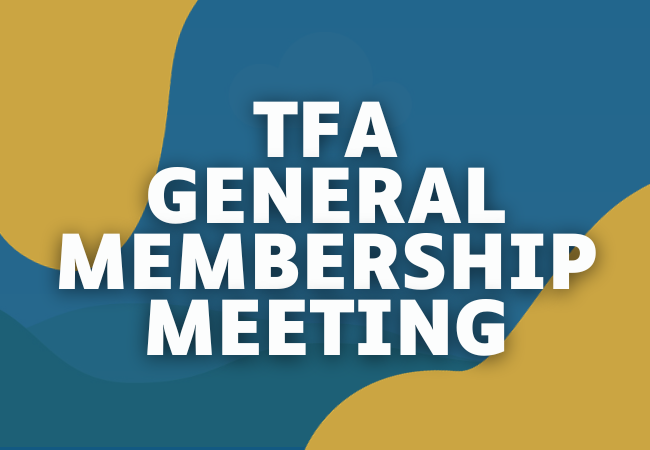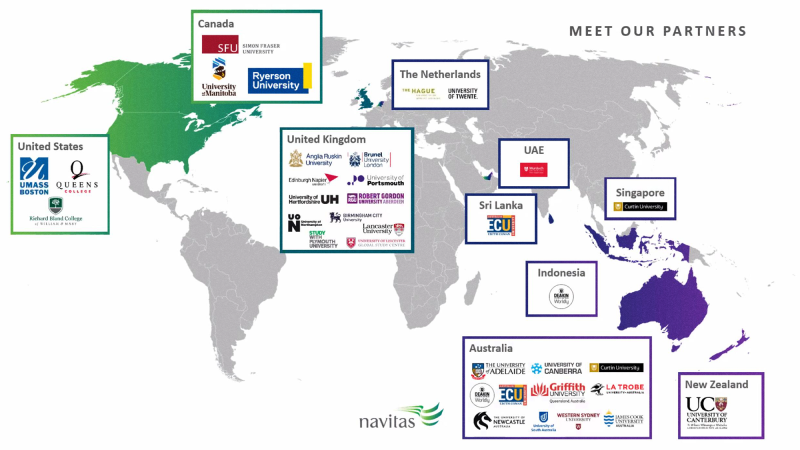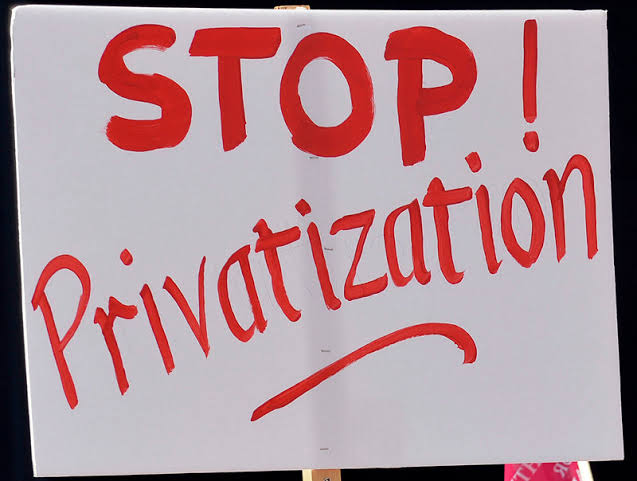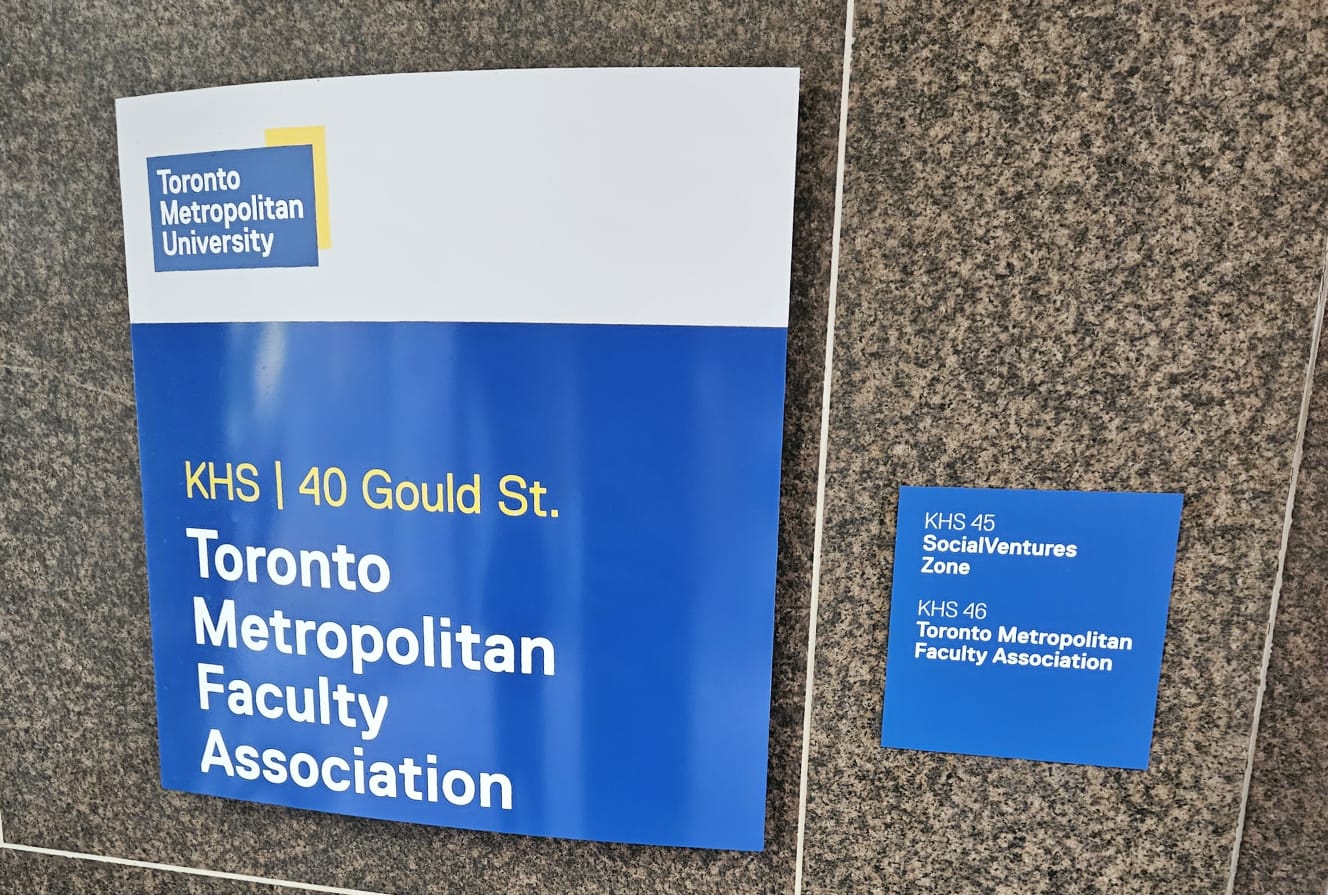The TFA has prepared the following brief to inform members of the status of Navitas operations at TMU. This brief addresses concerns regarding the university’s partnership agreement with Navitas, the status of TFA’s Navitas grievance, and what faculty need to know when their departments are approached with Navitas participation proposals.
Executive Summary
In 2020, TMU signed a ten-year agreement with Navitas, a for-profit Australian company that provides a variety of education services, notably assisting universities with international student recruitment. Based on the agreement, Navitas recruits international students into “pathway programs” at its college, located on TMU premises. A Navitas pathway program serves as the equivalent of the first year of a bachelor degree at TMU. Once students finish the pathway program, they are granted entry into the second-year of the corresponding degree program at TMU. There are currently six areas where Navitas is offering pathway courses. Gradually, more programs and departments are going to be approached with Navitas participation proposals. This brief is intended to help your department/school understand the true nature of these proposals and how to respond to them when your department/school is approached.
TFA has been extremely concerned with the Navitas agreement and the operations of this private service on our campus. Privatisation of higher education, violation of the Collective Agreement and the use of precarious and low-paid instructors, the lowering of academic standards, added workload and pressures on TFA faculty when unprepared students enter second-year of degree programs, and lack of proper supports and services (both academic and non-academic) for Navitas students are among the TFA’s concerns as outlined in this brief. In 2020, TFA filed a grievance with respect to Navitas.The grievance has been referred to arbitration and will be argued before Arbitrator Eli Gedalof.
Participating in Navitas is a major academic decision for programs. It is important to note that departmental/school councils–as the collegial decision-making body in each department–have the right to discuss and make decisions on whether the department should consider engaging with this for-profit education provider and recruiter. Most recently, the Computer Science department was approached with such a proposal and the faculty rejected the Navitas plan through decisions made at their departmental council. Similarly, in departments and schools where Navitas is already operational but little to no discussion was held at the council level at the time the decision was made, faculty can call for a discussion at their departmental/school council and consider rescinding their participation in the Navitas agreement.
What is Navitas?
Navitas is an Australian, for-profit education services provider focused on internationalization in the postsecondary sector through assisting universities in recruiting and educating international students. Active since 1994, Navitas has more than 30 university partnerships in various locations including North America, Europe, Australia and Asia.
Navitas entered the Canadian postsecondary education sector in 2006, signing a contract with Simon Fraser University (SFU) in British Columbia. They are currently active at four Canadian universities, namely SFU, University of Manitoba, TMU and Wilfrid Laurier University. Most recently, in June 2023, Navitas announced a new partnership with the University of Lethbridge. Navitas has also approached multiple other universities in Canada. At Western University the faculty used the procedures of collegial governance to force the Administration to cease negotiations with Navitas. Navitas continues to target other Canadian higher education institutions.
Navitas creates Navitas colleges at partner universities, such as the Toronto Metropolitan University International College (TMUIC), which are private for-profit institutions utilizing the resources of its partner universities. These colleges have two functions. First, they recruit international students who would not normally qualify for direct entry into the degree programs at their desired universities and create new so-called “pathways” for entry to universities for them through offering “flexible entry requirements”. Second, these pathway programs provided by the Navitas colleges serve as the equivalent of the first year of a bachelor degree at the partner university. Once the students finish the pathway program, they’re guaranteed entry (subject to meeting certain GPA requirements) into the second year of the regular degree program at the partner university. This in effect privatizes the first year of university for these students.
Here’s a full list of academic programs, currently offered through Navitas at other Canadian universities: https://docs.google.com/document/d/1SApCWCKPIus-_5b3K3QHXbUXE8qsxASTg1cFmebgbfs/edit?usp=sharing
Navitas at TMU
In August 2020, the TMU Administration announced a ten-year agreement with Navitas (operating under the title of “Ryerson University International College”). The agreement was established following a flawed and hurried consultation period with little transparency or information regarding critical aspects of the agreement including the courses being offered through Navitas and the instruction model. The partnership agreement was strongly opposed by multiple groups on campus including the TFA.
Faculty of Arts and Ted Rogers School of Management were the first participating faculties, with a group of 35 students already admitted to TMUIC in January 2021. Currently, TMUIC offers pathway programs in the following areas:
As Navitas operations on campus are growing, more programs and faculties are being approached to participate in the transfer programs.
Flaws and concerns
Privatization and commodification of higher education
The arrangement with Navitas, a for-profit company which is accountable to its shareholders, furthers the privatization and commodification of post-secondary education in Ontario. Navitas is a prime example of private companies who, with minimal capital investment, use postsecondary institutions to sell education at a profit, and compromise standards and values of universities, while using publicly funded and publicly provided facilities to do so.
The TFA has major reservations regarding the impact of the Navitas agreement on the quality of education at TMU, and the university’s ability to maintain high academic standards. While Navitas and the university Administration attempt to frame the partnership using internationalization and diversity as a vehicle and justification to have Navitas on our campus, in reality, these aggressive recruitment models are solely focused on increasing the number of high-paying international students that can be attracted in order to generate more revenue, with little care for the success and wellbeing of the individuals or values and standards of the university (Ross, 2023). It is a dehumanizing practice and a disturbing and flawed model (Hune-Brown, 2022; Robertson, 2021; de Wit, 2016; Devitt, 2023).
The TFA is not opposed to internationalization, but we question the outsourcing of this effort to a private company that will put profits before the interests of students, faculty and quality publication education.
Contribution to precarious academic work
By insisting that any Navitas (pathway) courses be taught by instructors provided by the Chang School, the university and Navitas are continuing to ensure that the courses are offered by a flexible and disposable workforce, consisting of precarious instructors with poor conditions of employment, very limited rights and security, and the lowest paid of all contract instructors at our University. By stating that the instructors are TMU faculty members, and unionized, the university Administration (and Navitas) are simply managing the optics.
Lower entry requirements
The Navitas model of recruitment is based on lowering of admission and entry requirements. On page 28 of the TMU/Navitas agreement (i.e. the Recognition and Educational Services Agreement), under Entry Criteria, it is stated that:
“The University also acknowledges and agrees that, for the UTP [University Transfer Program] to be successful, there must be a difference between the entry criteria for the UTP II and the entry criteria for direct entry into the first year of Bachelor Degree University Programs”
A lower entry requirement helps ensure that greater recruitment potential and revenue is harnessed. Further, the agreement also describes the difference in the English language requirement for admission into the UTP versus the first year of the degree program.There is a lower English language requirement for admission into the UTP.
Academic and pedagogic integrity concerns
The TFA has learned that several Navitas instructors have reported watering down and over-simplifying courses in order to teach the unprepared students, to be able to increase retention and secure their probability of being re-hired. Some instructors have expressed discomfort at teaching under these conditions. Instructors, who we have spoken to, are reporting that student performance is frequently not satisfactory, and doubts have been expressed by some instructors and coordinators that the students will be fit to be admitted to the second year classes.
While some students registered in the Navitas pathway program would/could otherwise have gained admission to TMU first year on their own merit, the agreement as presented by the Administration was that Navitas would not enrol such students and would redirect them to TMU’s international student recruitment office. We have subsequently learned that such students might not be redirected after all.
The situation is exacerbated further by the fact that Chang school (who provides the instructors) asserts that even the CUPE II hiring protocols do not need to be observed, and that the CUPE II seniority provisions do not apply in Navitas hirings. Hence there is even less rigour in the hiring of Navitas instructors, and this is compounded by the fact that Navitas staff are involved in the hiring decisions.
Workload concerns and additional pressures on TFA members
The lowering of academic standards both in the admission and pathway program stage of Navitas operations and the oversimplification of courses and loosening of academic expectations (as reported by Navitas instructors), along with the inadequate supports and resources offered to Navitas students, can result in added pressures for TFA faculty. Navitas students are promised additional academic supports and resources (including an extra hour of instruction), in order to successfully complete their pathway programs and enter the second-year degree programs. However, these supports are often inadequate. When unprepared students are granted entry into a second year of a degree program, there are additional pressures and expectations placed upon TFA faculty to support these students and ensure their success, while maintaining the academic integrity of their courses.
Intellectual Property concerns
Intellectual property concerns are indeed a serious consideration with respect to Navitas courses. While the agreement with Navitas is quite clear that intellectual property resides with individual faculty members, it also provides unfettered licence for the use of this intellectual property in Navitas courses, which renders the ownership of the intellectual property meaningless. It is also questionable whether the university has the right to offer such a licence for the use of intellectual property which it does not itself own – particularly if, as it claims, these are not degree credit courses taught as part of TMU.
Lack of access to services and protections for Navitas students
When international students are completing their first-year transition at a Navitas pathway program, even though they are on campus, they are not considered TMU students and thus do not have representation through students’ unions and access to other campus supports and services. This includes access to campus services such as Consent Comes First, Academic Accommodations for students living with disabilities, filing complaints through the office of Human Rights Services, and independent advocacy for appeals.
Student groups including the Canadian Federation of Students (CFS) have strongly condemned the practice of private, for-profit education companies (such as Navitas) offering instruction through public post-secondary education and called on the federal and provincial governments to prohibit the operation of these companies. At TMU, Toronto Metropolitan Association of Part-time Students (TMAPS) has been a vocal advocate for rights of international students and against the Navitas partnership.
TFA grievance and position
The TFA has publicly opposed the Navitas agreement from day one. TFA’s opposition to the partnership is based on concerns about privatising functions of the university, outsourcing labour to the most precariously employed instructors, treatment of international students as profit-generating commodities, violating the collective agreement and TFA members’ rights, and compromising of admission requirements and academic standards.
In 2020, the TFA filed a grievance with respect to Navitas, citing the University’s failure to assign bargaining unit work. The grievance was heard in March 2021 and subsequently referred to arbitration. There was a brief meditation session held on June 2, 2023 and the arbitration process will continue in the fall
The TFA’s position in its grievance is that the Navitas courses should be offered as part of TFA bargaining unit work and if not performed by TFA then they should be offered to CUPE Unit 1, as provided for in the TFA Collective Agreement.
TFA maintains that Navitas courses are TMU courses offered (for a fee to a private organization) on TMU campus (unless remote) and using TMU material, taught by TMU employed individuals, supervised by TMU faculty and Administration, and grant guaranteed entry into the second year of TMU degrees.
The TFA is seeking that the courses be administered, offered, maintained and assigned by the respective academic departments/schools, as is the case with all of their other degree credit curricular offerings to their program or degree students. This would address the academic integrity issues that are festering within the Navitas program and would be compliant with our bargaining unit rights. It would also ensure, as is the objective of our Collective Bargaining process, that the instructors of these courses would have higher pay and benefits, and potentially more job security – and would avoid bargaining unit work being subcontracted to a precarious and extremely low-paid and disempowered workforce.
While the TFA does not condone the recruitment methods used, nor the profiteering off the back of public education, and does not want to be seen as endorsing the presence of Navitas in any way, the remedy being sought by the TFA is designed to at least restore academic and pedagogic integrity, and fair collective bargaining outcomes, to this activity of the University.
The TFA is not opposed to offering a pathway program for international students. But we are opposed to this pathway program being privatized. The Navitas for profit program erodes the quality of education, is unfair to international students and violates the TFA’s collective agreement. The TFA is committed in the long-term to stopping the outsourcing of education to for-profit companies on campus.
What faculty can do?
As noted earlier in this brief, Navitas pathway programs are currently offered in several faculties and departments at TMU. As Navitas operations grow, more departments will likely be approached with offers to participate in Navitas. Most recently, the Computer Science department was approached with such a proposal and the faculty rejected the Navitas plan through decisions made at their departmental council.
Participating in Navitas is a major academic decision for departments and as such departmental councils–as the collegial decision-making body in each department–have the right and authority to discuss and make decisions on whether the department should consider engaging with Navitas. Similarly, in departments and programs where Navitas is already operational but no discussions were held at the council level at the time the decision was made, faculty can call for a discussion at their departmental council and possible rescinding of the Navitas participation agreement.
The TFA strongly encourages all members to ensure that any Navitas proposal is brought to their departmental council by their chairs for discussion and voting with proper notice, information and dedication of time for meaningful consideration. Members are also encouraged to keep TFA abreast of any such proposals.
To access a PDF of the brief: Navitas at TMU – What faculty need to know
Read More »






